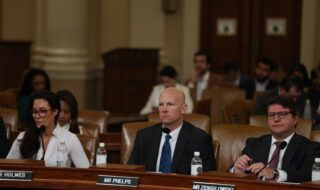NFIB Health Care Policy Paper Urges Lawmakers to Enact Relief for Main Street
NFIB Health Care Policy Paper Urges Lawmakers to Enact Relief for Main Street
March 7, 2025
NFIB report reveals a growing health insurance affordability crisis for small business owners
FOR IMMEDIATE RELEASE
AUGUSTA, ME (March 7, 2025) – The National Federation of Independent Business (NFIB), Maine’s leading small business advocacy association, released a new health care policy paper entitled, “Addressing the Health Insurance Affordability Crisis for Small Businesses.” The findings reveal a dire prognosis for state small-group insurance markets as employer-provided health coverage is becoming unsustainable for millions of small businesses and their employees.
“Continuously rising health insurance costs are a significant burden for Maine’s small businesses,” said NFIB Maine State Director David Clough. “For decades, health insurance costs have been the number one concern for small business owners. As this new paper shows, small-group markets are in crisis, premiums are unsustainable, and small businesses are being forced to make difficult choices. Governor Janet Mills in 2020 sought improvement through merging the individual and small group markets, but it’s not clear whether legislators are mindful of the struggles experienced by small businesses. By expanding coverage mandates and limiting basic cost-sharing protections, Maine legislators continue to make it more expensive for small businesses to provide health insurance to their employees. Main Street businesses lose. Their employees lose. We all lose.”
Key findings from the report:
- The small-group market is in freefall, with enrollment plummeting from 15 million individuals in 2014 to just 8.5 million in 2023, a 44% drop.
- Average premiums for small businesses have skyrocketed: Average single plan premiums have gone up 120% in the last two decades, while average family plan premiums have increased by 129% for firms with 50 or fewer employees.
- Only 30% of small businesses still offer health insurance, down from nearly 50% in 2000.
- Ninety-eight percent of small businesses say they are concerned about whether they will be able to afford to continue offering health insurance in the next five years.
- Small businesses pay twice as much for health insurance as large businesses, firms with less than $600,000 in revenue spend nearly 12% of payroll on health benefits, compared to 7% for firms with over $2.4 million in revenue.
Legislative recommendations include:
- Protect Employer-Sponsored Insurance
- Support Small Businesses with Targeted Health Insurance Tax Credits
- Expand Individual Coverage Health Reimbursement Arrangements (ICHRAs)
- Improve Employer Pooling Arrangements
- Expand Access to Health Savings Accounts (HSAs)
- Protect Small Businesses’ Access to Stop-Loss Insurance
- Expand Affordable Coverage Options
- Eliminate One-Size-Fits-All Mandates That Drive Up Premium Costs and Limit Competition
- Promote Price Transparency and Price Certainty
- Discourage Hospital Consolidation
- Reduce Prescription Drug Prices Through Innovation
View “Addressing the Health Insurance Affordability Crisis for Small Businesses” here.
###
For more than 80 years, NFIB has been advocating on behalf of America’s small and independent business owners, both in Washington, D.C., and in all 50 state capitals. NFIB is nonprofit, nonpartisan, and member-driven. Since our founding in 1943, NFIB has been exclusively dedicated to small and independent businesses, and remains so today. For more information, please visit nfib.com.
NFIB is a member-driven organization advocating on behalf of small and independent businesses nationwide.
Related Articles













